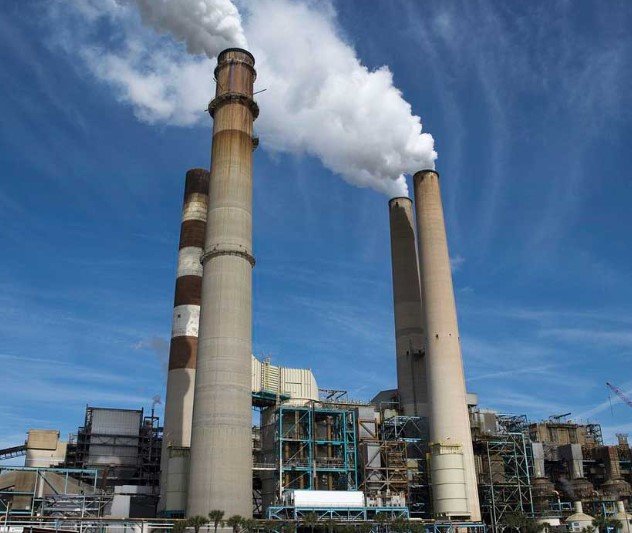A growing battle is unfolding between Republican attorneys general and major investment firms as a federal lawsuit claims that companies like BlackRock, Vanguard, and State Street have manipulated the coal industry in their pursuit of climate action. The case highlights a clash over the role of institutional investors in the fight against climate change—and whether their influence on the coal market is anticompetitive.
Eleven Republican attorneys general filed the lawsuit, accusing these investment giants of using their substantial shares in the nation’s largest publicly traded coal companies to force them to curb production. According to the plaintiffs, this push to reduce coal output is driving up energy costs for consumers while advancing a “woke” environmental agenda.
The Accusations Against BlackRock, Vanguard, and State Street
The heart of the lawsuit is the claim that BlackRock, Vanguard, and State Street have pressured coal companies to reduce their emissions by manipulating supply and production levels, ultimately raising energy costs for consumers. The case filed in U.S. District Court for the Eastern District of Texas accuses these firms of antitrust violations, alleging they are suppressing the coal market through their influence.
The plaintiffs argue that instead of market forces dictating the price and supply of coal, major investors like BlackRock’s CEO Larry Fink have been setting the agenda. The lawsuit states that these investment firms are using their significant stakes in coal companies to dictate management decisions, undermining competition and threatening the free market.

For example, BlackRock, the world’s largest asset manager, has committed to a sustainability-driven investment strategy. In 2020, Fink stated that “climate risk is investment risk” and urged companies to take environmental concerns seriously. However, critics argue that BlackRock’s strategy is more about pushing a climate agenda than ensuring fair market competition.
“Since 2020, BlackRock, Vanguard, and State Street have pushed companies toward climate-conscious strategies that prioritize emissions reductions over shareholder returns,” says the lawsuit, accusing these firms of ignoring their duty to investors by pushing the coal industry to curtail production in favor of political and environmental goals.
The Response From the Investment Firms
In response, both BlackRock and State Street have dismissed the claims as “baseless,” defending their commitment to long-term financial goals rather than political activism. State Street emphasized its role as a long-term investor, aligning with the financial interests of its stakeholders. BlackRock similarly rejected the allegations, stating that its efforts in the energy sector aim to support sustainable development and help millions of Americans retire with dignity through sound investments.
Despite their defense, these firms are clearly at the center of a much larger political and economic storm. Their push for sustainability has been met with resistance from a growing group of Republican leaders who view these efforts as an overreach that ultimately harms consumers by increasing energy costs.
The Broader Political Fallout
The lawsuit has sparked a heated debate in the political sphere, with several attorneys general fiercely denouncing the investment firms’ practices. Nebraska Attorney General Mike Hilgers called the firms’ actions “weaponizing” their market power to push a radical climate agenda. “Whether it comes from state or federal governments or the private sector, the radical climate agenda harms Nebraskans,” Hilgers said, adding that such actions were driving up energy prices.
Other state attorneys general from Missouri, Indiana, and Iowa have joined the fray, accusing the firms of jeopardizing local economies that rely heavily on coal production. Missouri Attorney General Andrew Bailey pledged to take action to protect consumers from inflated energy prices, while Indiana Attorney General Todd Rokita slammed the firms for “driving up energy costs for hardworking Hoosiers.”
Iowa Attorney General Brenna Bird has been especially vocal in her criticism of what she calls the “woke machine.” In a statement, she argued that while these investment firms profit from higher energy prices, ordinary families and farmers are left paying the price.
The political fallout has revealed a deepening divide between those who support action on climate change and those who argue that such measures harm workers and communities that depend on fossil fuel industries. It also underscores a broader cultural battle—one where the focus on climate change intersects with rising concerns about the economic well-being of states that rely on coal for power and jobs.
The Impact on the Coal Industry
At the core of this issue lies the coal industry itself. Coal is a major contributor to energy-related carbon emissions, and efforts to reduce emissions have put pressure on the sector. The Biden administration has pushed for a shift toward renewable energy sources, but coal still represents a significant portion of the energy mix.
In 2022, coal was responsible for 19% of energy-related carbon emissions in the U.S., according to the Energy Information Administration. Coal also makes up more than half of the emissions from the country’s electric power companies. As investment firms like BlackRock and Vanguard push for a transition to cleaner energy, they have targeted coal as a key industry to challenge. However, the lawsuit argues that such actions have led to a reduction in supply, which in turn drives up prices for consumers—particularly in states that are heavily dependent on coal for electricity generation.
This conflict between environmental goals and economic realities is far from over. As more states challenge the practices of investment firms, the question remains: will sustainability efforts create a new era of clean energy, or will they further strain an already burdened coal industry and the communities it serves?

Comments